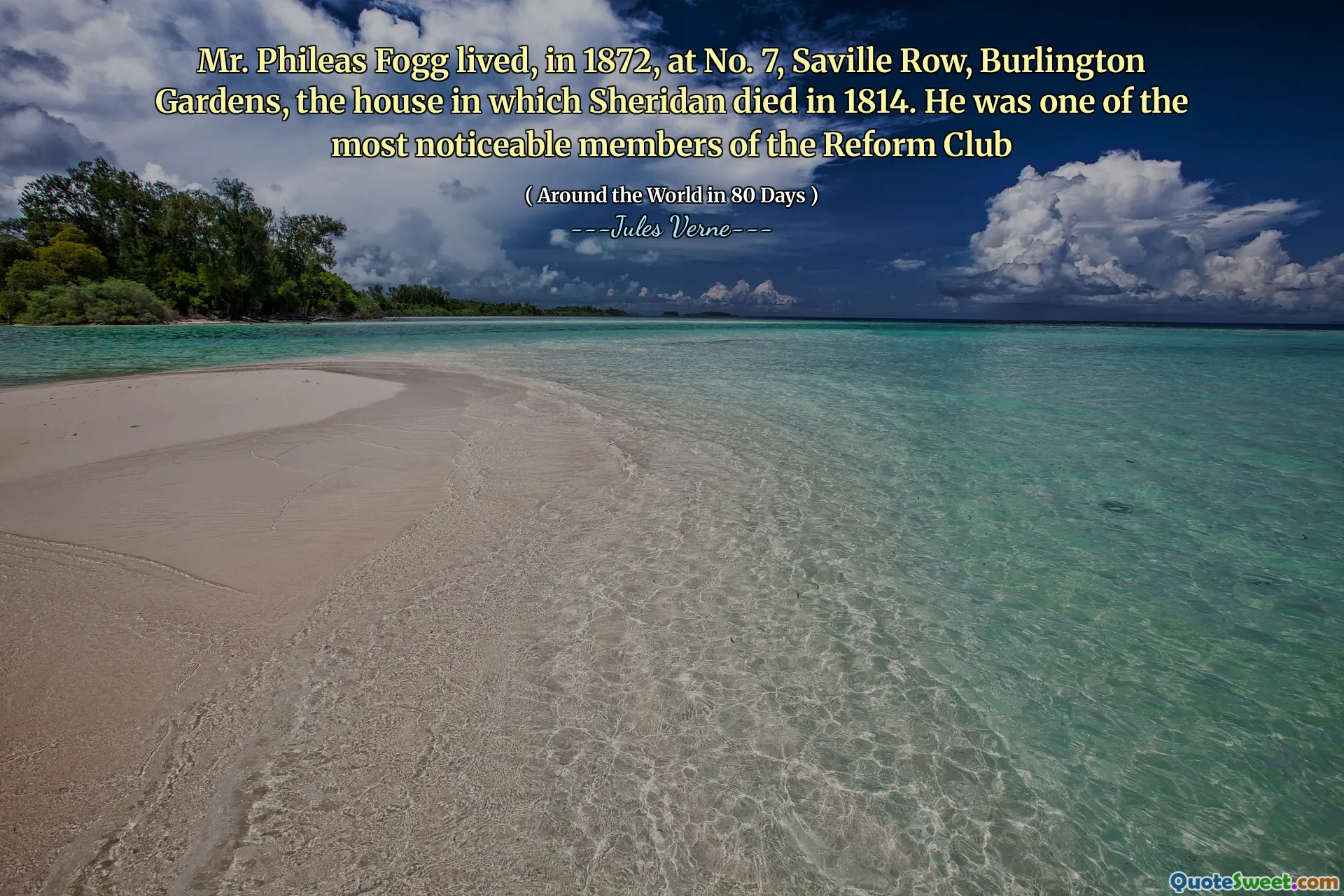
Mr. Phileas Fogg lived, in 1872, at No. 7, Saville Row, Burlington Gardens, the house in which Sheridan died in 1814. He was one of the most noticeable members of the Reform Club
The quote paints a vivid picture of Phileas Fogg, a character emblematic of Victorian precision and social status. The detailed address situates him within a specific social class and geographic context, suggesting affluence and sophistication. Mentioning that he resides in the same house where Sheridan died adds historical depth, linking Fogg to an earlier cultural legacy. This connection emphasizes a sense of continuity between past and present, tradition, and progress—central themes in Jules Verne's adventure narrative.
Fogg’s association with the Reform Club further underscores his social standing and likely reflects his values—perhaps rationality, order, and a commitment to societal change through reform. The choice of this setting in 1872 also highlights the importance of societal institutions in Victorian Britain, acting as hubs for conversation, influence, and social mobility.
Looking beyond the literal details, the quote introduces us to a character whose meticulous nature and adherence to schedule mirror the physiological impact of the era’s optimism about progress—believing in human capacity to conquer vast distances and obstacles through innovation and determination. It invites reflection on how individuals are embedded within their social and historical contexts, shaping their identities and actions.
In a broader sense, the geographic and social details serve as identifiers, providing depth to Fogg’s character and setting the stage for the adventurous themes of global exploration and time-bound challenges. These details remind us of the intricate relationship between personal identity, social standing, and cultural heritage, framing Fogg as a product of his environment and a participant in the grand machines of society, history, and progress.







